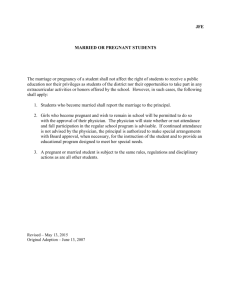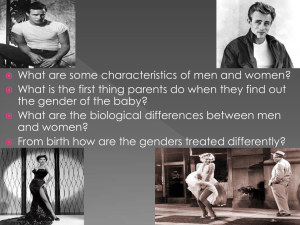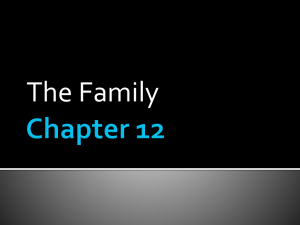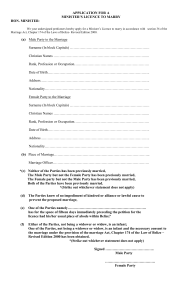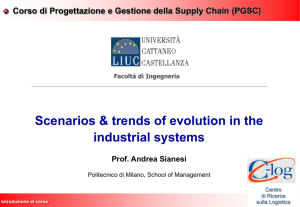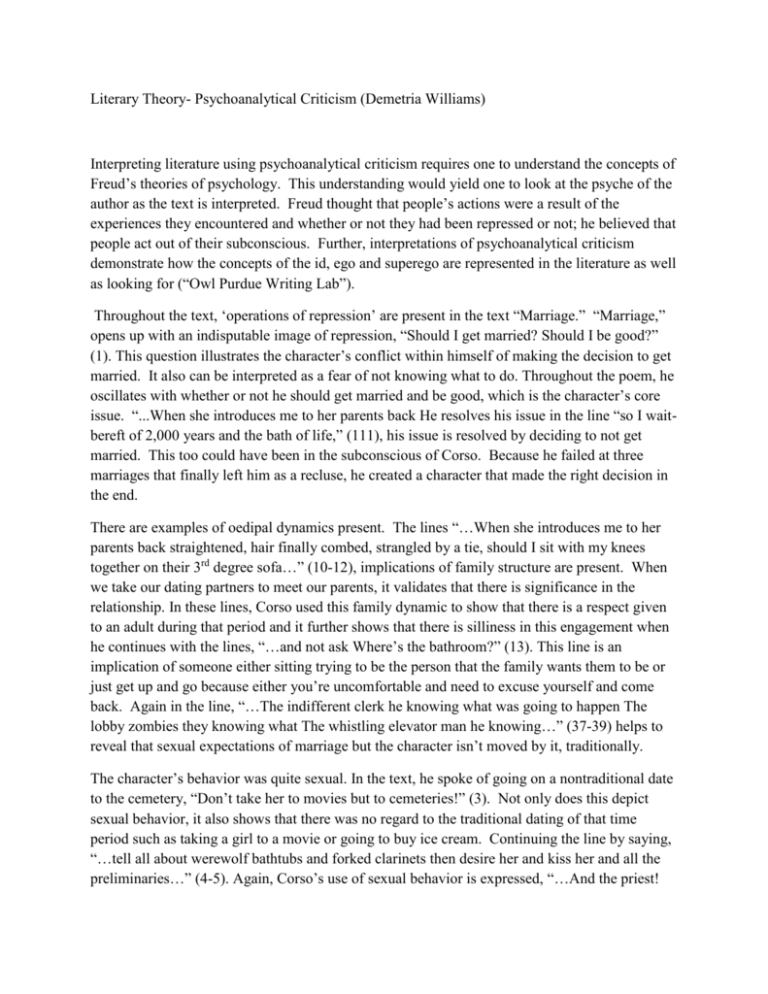
Literary Theory- Psychoanalytical Criticism (Demetria Williams)
Interpreting literature using psychoanalytical criticism requires one to understand the concepts of
Freud’s theories of psychology. This understanding would yield one to look at the psyche of the
author as the text is interpreted. Freud thought that people’s actions were a result of the
experiences they encountered and whether or not they had been repressed or not; he believed that
people act out of their subconscious. Further, interpretations of psychoanalytical criticism
demonstrate how the concepts of the id, ego and superego are represented in the literature as well
as looking for (“Owl Purdue Writing Lab”).
Throughout the text, ‘operations of repression’ are present in the text “Marriage.” “Marriage,”
opens up with an indisputable image of repression, “Should I get married? Should I be good?”
(1). This question illustrates the character’s conflict within himself of making the decision to get
married. It also can be interpreted as a fear of not knowing what to do. Throughout the poem, he
oscillates with whether or not he should get married and be good, which is the character’s core
issue. “...When she introduces me to her parents back He resolves his issue in the line “so I waitbereft of 2,000 years and the bath of life,” (111), his issue is resolved by deciding to not get
married. This too could have been in the subconscious of Corso. Because he failed at three
marriages that finally left him as a recluse, he created a character that made the right decision in
the end.
There are examples of oedipal dynamics present. The lines “…When she introduces me to her
parents back straightened, hair finally combed, strangled by a tie, should I sit with my knees
together on their 3rd degree sofa…” (10-12), implications of family structure are present. When
we take our dating partners to meet our parents, it validates that there is significance in the
relationship. In these lines, Corso used this family dynamic to show that there is a respect given
to an adult during that period and it further shows that there is silliness in this engagement when
he continues with the lines, “…and not ask Where’s the bathroom?” (13). This line is an
implication of someone either sitting trying to be the person that the family wants them to be or
just get up and go because either you’re uncomfortable and need to excuse yourself and come
back. Again in the line, “…The indifferent clerk he knowing what was going to happen The
lobby zombies they knowing what The whistling elevator man he knowing…” (37-39) helps to
reveal that sexual expectations of marriage but the character isn’t moved by it, traditionally.
The character’s behavior was quite sexual. In the text, he spoke of going on a nontraditional date
to the cemetery, “Don’t take her to movies but to cemeteries!” (3). Not only does this depict
sexual behavior, it also shows that there was no regard to the traditional dating of that time
period such as taking a girl to a movie or going to buy ice cream. Continuing the line by saying,
“…tell all about werewolf bathtubs and forked clarinets then desire her and kiss her and all the
preliminaries…” (4-5). Again, Corso’s use of sexual behavior is expressed, “…And the priest!
He looking at me as if I masturbated (27). In respect to the id, ego and superego, these
occurrences demonstrate how they are in conflict. The id wants the impulsive desires of the
character being with his girlfriend to be satisfied. His ego is trying to calm him down and not act
on his desires. In the line, “Instead take her in my arms lean against an old crooked tombstone
and woo her the entire night the constellations in the sky,” (8-9) shows that his conscious of
what’s right and wrong prevailed the id and ego to be enjoy the night of romance. The superego
was the successor in the conflict.
4This work suggests that the psychological being of Gregory Corso was that of a rebel. He lived
a troubled life; he was abandoned by his mother so he could have been in some part expressing
(when he details the images of a wife that are depicted in the poem) things that he thought of
daily as he went from foster home to foster home. He appeared to have trouble believing in the
significance of marriage. This is also concurrent with his life; Corso married 3 times. He also
had a heroin addiction that left him a loner so this text could have been. Heroin has been
associated with subcultures. Corso was a part of the Beatniks so drug use wasn’t uncommon for
him. I think that some of the things he wrote about were definitely parallel to some of the
images that he had probably seen as a result of using heroin. In a study of heroin addicts,
Duterte concluded, “There are many youth groups and subcultures that idealize what goes
against the mainstream, particularly if it reflects their perceptions of their own identity…” (598).
They also concluded, “Youths form subcultures from shared interests in music (e.g., punks), art
(e.g., graffiti artists), literature (e.g., Beatniks), hobbies (e.g., skaters), and moral beliefs (e.g.,
straights). This fact, in connection with Corso’s relationship to the Beatniks is heavily
influenced in the poem. Especially in the line where he states, “No, can’t imagine myself
married to that pleasant prison dream” (96), is his views on marriage proving him a rebel.
The reader’s psychological motive would be to view the character as deranged rebel against
marriage as opposed to one that is weighing the pros and cons of something before he makes the
ultimate decision.
From the beginning to the end, there is a prevalence of “problem words.” The line, “…Tack
Della Francesca all over its crib…”(75). Again, the line, “…saying Christmas teeth! Radiant
brains! Apple deaf!” (55). The use of ‘Tanna Tuva’ in line 60, werewolf bathtubs and forked
clarinets in line 4 and Flash Gordon soap in line 15 are all examples of ”problem words” used
throughout the text. I think the use of these words were to give subliminal meaning. For
example, Flash Gordon was a household comic name but to think of it while you’re sitting on a
couch about to meet your girlfriend’s parents, has to imply something more than just comedy or
merely that the engagement itself is pure comedy.
In my opinion, “Marriage” is a poem about a man that thinks marriage is a system forces one to
behave a certain and he was against conforming to it. The poem does however, bring to light
social norms. When he speaks of possible wives, socioeconomic statuses were transparent.
Durete, Micheline, et al. “Tragic Beauties: Heroin Users.” Contemporary Drug Problems
30.3 (2003): 595-617. ProQuest. Web. 20 Nov. 2011
Lewis, Leon. "Gregory Corso." Research Guide To Biography & Criticism 5. (1991):
187-192. Literary Reference Center. Web. 20 Nov. 2011.


